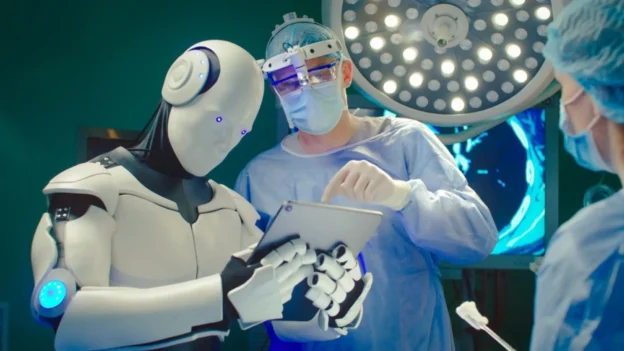China inaugurated its first AI (artificial intelligence) hospital city. In this new medical environment, patients are treated in a virtual world by AI-generated doctors, state media reported Wednesday.
The concept of an AI hospital city has enormous potential for both medical professionals and the general population. The Beijing-based Global Times highlighted that this AI hospital aims to train medical agents in a simulated environment allowing them to evolve autonomously and improve their skills in treating diseases.
In addition, the researchers have emphasized the practical implications of this new approach to healthcare.
Advances in medicine with the “Agent Hospital”.
Recently, a group of scientists from Tsinghua University have developed the “Agent Hospital,” a virtual world in which all doctors, nurses and patients are controlled by intelligent agents. These agents are driven by large language models (LLMs) that interact autonomously.
On the other hand, AI doctors have the capacity to treat 10,000 patients in just a few days, a feat that would take human doctors at least two years. Liu Yang, the leader of the Agent Hospital research team, explained that this method allows real doctors to treat virtual patients, while providing better training for medical students.
Likewise, by simulating various AI patients, students can confidently propose treatment plans without the risk of causing harm to real patients, Liu said. He also noted that AI in a hospital city can simulate and predict various medical scenarios, such as the spread, development and control of infectious diseases in a region.
Operationality of the hospital city with IA
Finally, Liu announced that after six months of development, the AI hospital city is almost ready for practical use, with the expectation of being operational later this year.
This breakthrough promises to change and develop the way future physicians are trained, and could be a model for other nations looking to integrate AI into their healthcare systems to improve efficiency and accuracy in diagnosis and treatment.
Follow us on social networks and don’t miss any of our publications!
YouTube LinkedIn Facebook Instagram X
Source: AA
Photo: Shutterstock

